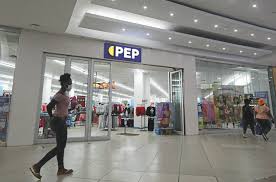South African retail group Pepkor Holdings has reported a 12.4% increase in its half-year earnings, backed by stronger product availability and impressive growth in its mobile and financial services businesses. The group, which owns well-known clothing brands like PEP and Ackermans, released its financial results on Tuesday for the six-month period ending March 31, 2025.
Headline earnings per share (HEPS) from continuing operations rose to 84.3 cents, up from 75 cents in the same period last year. The company also reported an 18.9% increase in its normalised HEPS, reflecting a strong performance across key segments of its business.
Group revenue increased by 12.8% to 48.8 billion rand, which is approximately $2.73 billion. According to Pepkor, this growth was fuelled by higher merchandise availability following improvements at South African ports, which had previously suffered from congestion and delays that affected product supply chains.
The group’s clothing and general merchandise division – its core business segment – saw a 9.5% revenue growth, reaching 34.5 billion rand. The segment includes PEP and Ackermans stores, which are popular among South Africans for their affordable fashion and schoolwear products.
In its furniture, appliances, and electronics division, which includes brands such as JD Group and Incredible Connection, revenue climbed by 9.1% to 6.5 billion rand. This growth reflects stable demand in the consumer electronics and household goods markets, despite challenging economic conditions.
One of the standout performers was Pepkor’s financial technology (fintech) business. This unit delivered an impressive 34.5% jump in revenue to 7.9 billion rand. The fintech growth was mainly driven by a massive 67.3% increase in revenue from financial services, showing rising demand for digital financial solutions, insurance products, and value-added services among lower- and middle-income customers.
Cellular connectivity also played a big role in the group’s success. The number of mobile phones sold rose by 17%, with 6.8 million handsets sold during the half-year period. Pepkor now dominates the prepaid mobile market, accounting for eight out of every ten prepaid handset sales in South Africa. The company said this has helped it gain further market share and attract new customers.
Pepkor noted that its performance was also supported by improvements in stock flow. The easing of congestion at local ports allowed the group to receive and distribute goods more efficiently than in previous periods. Product availability had been a concern for the retail sector last year due to delays in imports and local logistics challenges.
Commenting on the results, Pepkor management said the group remains focused on maintaining its competitive pricing model and increasing access to essential products and services for South African households. The company plans to continue expanding its reach through store openings and digital platforms, especially in areas with limited retail presence.
With South African consumers still facing economic pressure from high unemployment and rising living costs, Pepkor’s discount retail model remains popular. The group’s ability to offer affordable clothing, furniture, electronics, and mobile devices has helped it maintain a loyal customer base and grow revenue even in difficult market conditions.
Despite global economic uncertainties, Pepkor’s strong half-year performance highlights the resilience of South Africa’s low-income consumer market and the potential of integrated retail-fintech strategies in the African retail sector.
